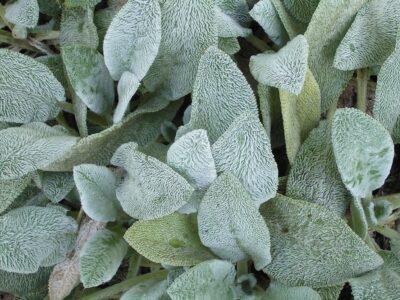Flu season has arrived, and we find ourselves taking extra precautions to ensure we are not the next victim of the cold and flu viruses spreading around our communities.
Perhaps we increase our vitamin intake or even obsessively wash our hands. While those are easy to do around our homestead, many of us reach for an antibacterial gel. But that’s probably not the best idea.
The Problem With Store-Bought Antibacterial Gel
Each spring our local elementary hosts a science fair. There is usually one project investigating the effectiveness of antibacterial gel versus traditional hand washing. A quick glance at the petri dishes confirms that traditional hot soapy water does the job just fine. Even the FDA has banned certain ingredients in commercially manufactured antibacterial soaps and alcohol-based gels. One controversial component now banned in soaps by the FDA is triclosan. Triclosan has been linked to thyroid problems and increasing resistant strains of bacteria. Manufacturers have until the fall of 2017 to reformulate their antibacterial soaps; however, antibacterial gels are exempt from this ruling.
Nature, though, has provided all we need to combat viruses and bacteria. From medicinal plants grown in our herb gardens to essential oils curated from the best sources, creating our own antibacterial gels and sprays to use when we are away from home, or when we need an extra layer of protection after coming in contact with those suffering from illness, is a simple process and requires few ingredients.
Here are several ways to do it …
The Best All-Natural Ingredients To Use
Grown in containers, rosemary is useful as a seasoning and as a garnish for savory dishes, but it has several medicinal qualities, as well. Rosemary is antibacterial and anti-viral. Preparing an infusion of fresh rosemary creates a non-toxic alternative to commercially produced antibacterial gels. Using a one-to-eight ratio of fresh rosemary to distilled water in a stainless steel pan, bring the water to a simmer, and then cover and remove from heat. Let the rosemary steep for 20 minutes. The infused water, when cooled, can be transferred into a spray bottle for convenient applications. It also can be added to foaming solutions of castile soap, adding a layer of antibacterial protection.
This Amazing Super-Food Could Be The “Secret Weapon” to Survival
Wooly lamb’s ear is not typically thought of as anything more than a textured addition to landscapes, but it has amazing antibacterial, anti-viral and anti-inflammatory properties and is useful in the treatment of bruising and cuts and abrasions, in addition to reducing fevers and swelling due to insect bites and bee stings. As with the rosemary infusion, an infusion of wooly lamb’s ear makes a quick and effective antibacterial on-the-go spray.
If time permits, create your own extract using a one-to-three ratio of chopped wooly lamb’s ear and vodka. Let steep for four to six weeks in a cool, dark area, gently shaking every few days. Use a few drops of this extract combined with rubbing alcohol or witch hazel in a spray bottle for a concentrated antibacterial spray.
Essential Oils
The use of essential oils has certainly experienced a revival in recent years, and as a result they have become much more readily available to the average consumer. Many oils are antibacterial in nature and most contain additional properties that are beneficial to our overall health. In addition to the benefits gained from using essential oils, we also help diminish the growth of resistant strains of bacteria. That’s because the use of naturally occurring antibacterial extracts, oils or the like does not lead to the creation of superbugs or resistant bacteria.
Perhaps the most commonly known essential oil is tea tree oil (melaleuca oil), which is a medicinal powerhouse. Antibacterial, anti-viral and antiseptic, tea tree oil is an excellent addition to any antibacterial gel or spray formula.
Start an antibacterial gel formula with Aloe Vera, adding a small amount of witch hazel at a ratio of one-to-eight, and essential oils; a popular antibacterial combination is lavender and tea tree oil. Rosemary oil added to this formula will act as a natural preservative.
To any essential oil blend, a few drops of vitamin E oil will not only act as a natural preservative but also will moisturize your hands.
Do you make your own antibacterial gel? If so, share your tips in the section below:
 Off The Grid News Better Ideas For Off The Grid Living
Off The Grid News Better Ideas For Off The Grid Living





